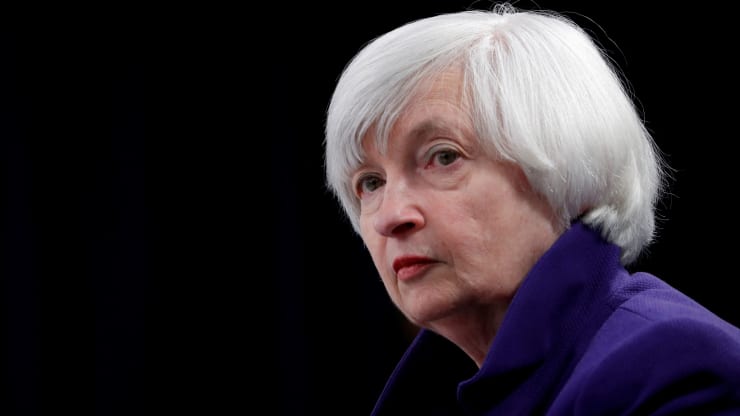Treasury Secretary Janet Yellen said Tuesday that higher interest rates may be needed in order to stave off runaway economic growth in the U.S. brought on in part by trillions in government stimulus measures.

Source: Fox Business
“It may be that interest rates will have to rise somewhat to make sure that our economy doesn’t overheat,” Yellen said during an economic summit hosted by The Atlantic. “Even though the additional spending is relatively small to the size of the economy, it could cause some very modest increases in interest rates.”
Since the coronavirus pandemic began a little more than one year ago, Congress has approved nearly $6 trillion in federal spending designed to keep the nation’s economy afloat. The exorbitant level of spending pushed the nation’s deficit to a record $3.1 trillion for the 2020 fiscal year and a high of $1.7 trillion for the first half of fiscal 2021.
Congressional Democrats are now pushing forward with passing another $4 trillion in spending that would be the basis of President Biden’s sweeping “Build Back Better” agenda. The pair of proposals, known as the American Jobs Plan and the American Families Plan, would be offset by tax increases on wealthy Americans and corporations.
While Yellen – who led the Federal Reserve from 2014 to 2018 – said the U.S. needs to focus on long-term fiscal responsibility, she argued the unprecedented level of spending is needed to invest in the economy and ensure that it’s “competitive and productive.”
Yellen’s comments deepened an ongoing stock sell-off.
The Federal Reserve has held interest rates near zero since March 2020, even as the economy’s recovery from the pandemic rapidly strengthens.
Policymakers voted unanimously during their two-day policy-setting meeting last week to leave the benchmark federal fund rates unchanged at a range between 0% and 0.25% and pledged to do so until “labor market conditions have reached levels consistent with the Committee’s assessments of maximum employment and inflation has risen to 2 percent and is on track to moderately exceed 2 percent for some time.”
Fed Chairman Jerome Powell said during a press conference these conditions are unlikely to occur this year. Economic projections from policymakers’ last meeting show that most officials expect rates to remain near zero through 2023.
“Powell has indicated that the central bank would begin making any adjustments to monetary policy by communicating its intention to scale back asset purchases and then follow through later on those words and lastly lifting rates from their current record low levels,” Mark Hamrick, senior economic analyst at Bankrate, said. “It would seem to be that Yellen believes that more significant or sustained inflation is a higher risk than what Powell has essentially repeatedly pledged should be short-lived or ‘transitory’, one of his new favorite words.”
Despite the different policy stances seemingly embraced by Powell and Yellen, Hamrick noted that whether or not to raise interest rates is no longer a “decision she can or needs to make.”
There are still roughly 8.4 million fewer jobs than there were before the pandemic struck, and the jobless rate remains at 6%, well above the half-century low it sat at last February. Although inflation has risen recently, policymakers called the uptick “transitory” and noted that it’s running consistently below the Fed’s 2% target.

